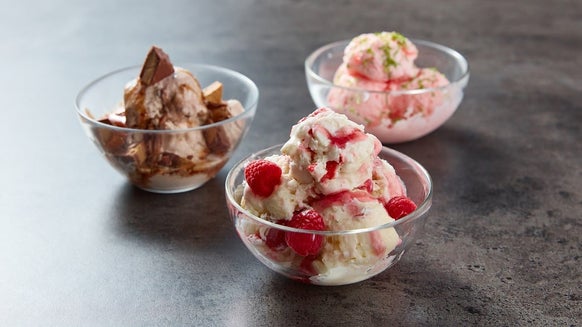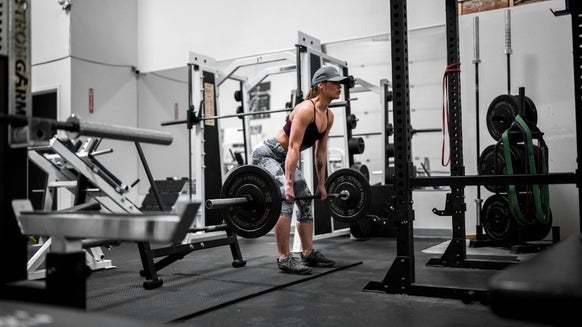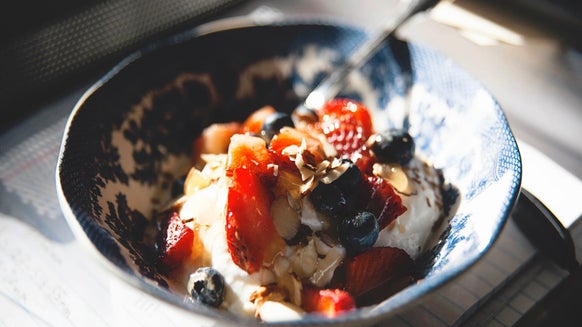How Many Calories Should You Eat To Lose Weight?

When it comes to weight loss, you might feel so overwhelmed with information, fad diets, and food options that it seems impossible to make the right decision.
One thing that weight loss diets have in common? Calorie consumption — specifically, consuming no more than what your body is burning each day.
The amount of calories you need for weight loss varies based on your current weight, body type, age, and exercise level. Read on to learn how to decode all the noise and figure out the basics for success.

Why are calories important?
Calories are a measurement of energy — the energy that our body obtains from food. It’s important to consider how many calories are in the food we eat and how many calories our bodies actually need.
It’s easy, with so many delicious and convenient food options, to greatly underestimate just how many calories we consume without even realising.
Have you ever checked the label on your food before choosing how much to eat? It can be surprising, when we actually weigh or measure our foods, to see if our portion (the amount we choose to eat) matches the recommended serving size (the reference amount on the nutrition label).
Are calories created equal?
In theory, a calorie is a calorie... With two exceptions. Macronutrients vary in how many calories they contribute per gram, and the QUALITY of the calories that you choose can have a great impact on your weight and your health.
First, let's discuss the macronutrients, or “macros” — carbs, protein, and fat. Gram for gram, carbs and protein both contribute 4 calories per gram, but fat contributes 9 calories per gram.
This is why high-fat foods are also high in calories. However, foods that are higher in calories aren’t always bad for you. This is where nutrient density, or quality, should be considered.
If you eat a chocolate bar that contains 40 grams of carbs, you likely get a lot of added sugars with little protein, fibre, or vitamins. If you eat a bowl of fresh berries, you can also consume 40 grams of carbs, but the berries are packed with antioxidants, fibre, water, and vitamins to keep you healthy.
If you’re trying to lose weight, calories are still king — you need to burn more than you eat — but making healthy choices can make the road to weight loss also result in better health in the long term.
How much should you eat?
When you want to think about losing weight, first you have to figure out how many calories your body naturally burns.
Use this page to calculate two numbers: your basal metabolic rate (BMR), how much you would burn if you didn’t move all day, and your TDEE – the number of calories you burn based on your level of activity.
Generally, adolescents are rapidly growing and have a very high metabolism. As we age, our metabolism starts to slow down.
The amount of lean muscle we have also impacts our metabolism, as muscle tissue burns more calories even at rest.
For this reason, these numbers are always just estimates and keeping track of what you’re eating (the food, amounts, and calories) can help you learn exactly what calorie intake is best for your body.
Learning this “baseline” or normal calorie level (that doesn’t cause weight loss or gain) is the key to figuring out how to lose weight.
How to calculate your calories for weight loss
If you’re trying to lose weight, you need to “cut” about 500 calories a day, whether that’s by eating less or exercising more. If you’re currently sedentary, you can increase your exercise and make fewer changes to your diet.
If you’re very active but overeating, keeping the same exercise level but cutting back on your portions can make the difference. Most people need to follow a combined approach — reducing food intake while increasing exercise.
Keep in mind, you can eat a 400-calorie candy bar in about 3 minutes, but it could take up to 90 minutes of exercise to burn off. While burning calories through exercise is helpful, sometimes the simpler approach is to make changes to your diet first – and let exercise help you keep off the weight you lose.
For example, let’s say that your TDEE is about 2,200 calories per day. If you don’t want to change your workout plans, you can cut your calorie intake to 1,700 to lose about 1lb per week.
If you’re not currently very active, burning around 300 calories per day (jogging 2-3 miles) and eating 200 calories less per day would likely lead to the same result — about 1lb per week.
While this is the widely accepted “maths equation” for weight loss, it’s not an exact science.
These general guidelines can help get you on the right track, but it’s important for you to closely monitor your eating and exercise habits, as well as your weight (at least weekly), so you can make changes to get the results you’re looking for.
How many calories should you eat each day for weight loss?
You might notice that many nutrition labels reference a 2,000-calorie-per-day diet as a reference.
This is appropriate for moderately active women and probably a bit low for an average man who exercises regularly.
So, let’s say 2,000 is the reference for an active woman and 2,500 is the reference for an active, average man. This leaves a 1,500-calorie goal for the woman to lose 1lb per week, and a 2,000-daily goal for the man to lose 1lb per week.
In the big picture, you need to reduce your calorie levels by 500 calories per day (or 3,500 per week) to see weight loss.
The more active you are, the more calories you can eat and the less active, the fewer your body needs. However, if your TDEE calculation is 1,500 or below, don’t drop below 1,200 calories for a goal calorie intake.
1,200 is the minimum calorie intake to provide your body with the protein, carbs, and fats that it needs to function properly. If your intake is already on this low end, you might need to consider upping your workout routine to see results.
How to reduce your calorie intake without feeling hungry
When trying to lose weight, you don’t have to suffer through feeling hungry! Making healthy choices can be filling and satisfying with proper planning. Junk food often tastes good but might not be satisfying for very long. Often it doesn't contain much protein or fibre, two keys to feeling full.
Eat more protein (and produce)
When trying to lose weight, think about being a “PRO” — meaning you should include PROtein and PROduce (fruits or veggies) in every meal and snack. Protein and high fibre foods (like fruits and veggies) actually slow down the digestive process, making your body feel fuller for longer.
At meals, visually set up your plate to be half filled with fruit and veg — more veggies if you can. Use another quarter of the plate for a lean protein source, and the last quarter for a starchy food or carb. This method automatically helps control portions on focus on protein and produce.
Limit refined grains
Refined grains, or simple carbs, can seem like a good option — usually low in calories (think white rice or white bread) — but they don’t keep you satisfied for very long.
Refined carbs spike your blood sugar levels, trigger insulin release, and then the blood sugar goes back down rather quickly.
Choosing whole grains, or complex carbs, takes longer to digest and avoids that blood sugar crash that makes you feel hungry again.
Instead of crackers for a snack, grab some nuts or a hard-boiled egg and a piece of fruit. Instead of just a banana for a snack, incorporate some peanut butter — the fat content is high in calories, but keeps you satisfied — and less likely to overeat.
Combing some protein or fibre with a snack that is higher in carbs keeps your blood sugar more stable, rather than making you crave another snack 20 minutes later.
Avoid added sugars
You probably know that sugar sweetened beverages like sodas are loaded with calories and don’t help you lose weight. However, have you considered the sugar in your fancy coffee shop beverage or sweet tea?
While juice gives you some vitamins, it’s a source of a lot of natural sugar (and some juice “beverages” that aren’t 100% juice have even more added). Watch for added sugars in your drinks, as well as in condiments and sauces.
If it’s too hard to cut back or switch to sugar free options, do it slowly and replace those drinks with water. “Drinking” your calories means you have less to eat to stay within your calorie limits.
Instead of these foods, try these instead:
| Hidden Sugars | Lower-sugar alternatives |
| Bottled milky coffee beverage (200 calories, 23 grams sugar) | Brewed coffee with 1Tbsp whole milk (15 calories, 0 sugar) |
| Large soda (310 calories, 36g sugar) | Fruit flavored bottled water (0 calories, 0 sugar) |
| Bottled green tea with honey (70 calories, 19g sugar) | Brewed green tea with fresh mint (0 calories, 0 sugar) |
| strawberry yogurt (180 calories, 16 g sugar) | Plain Greek yogurt with ½ cup strawberries (150 calories, 9 grams sugar) |
Drink more water
If you’re eliminating sweetened beverages, make sure to replace them with water — you want to avoid dehydration. If you’re adding more fruits, vegetables, and whole grains to your diet, you’re also increasing your fibre intake. More fibre means you’ll need more water to keep your digestive system happy.
Take home message
Weight loss doesn’t have to be complicated, but there are some simple ways to stay on track. Weigh and measure what you eat, write down your calorie intake, and get on the scale about once a week to measure progress. Exercise is another key for weight loss, but making changes in the kitchen first can make a big difference.








